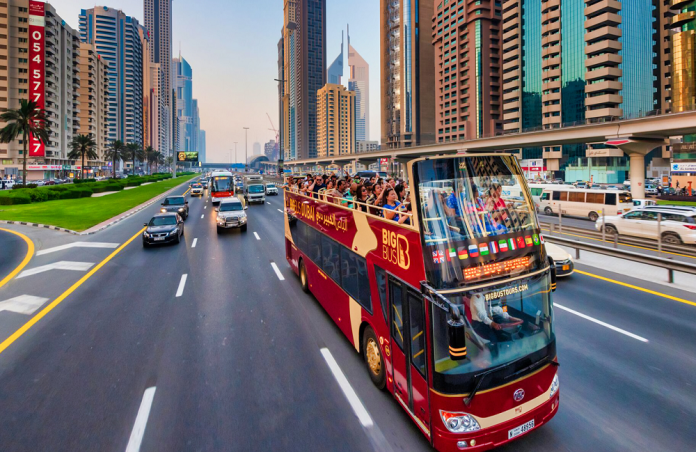Dubai will gradually phase out traditional buses in four areas across the city and have them replaced with electric ones, a senior official from the Roads and Transport Authority has confirmed to Khaleej Times.
Ahmed Bahrozyan, CEO of RTA’s Public Transport Agency, said: “A total of 40 electric buses will be purchased and integrated into RTA’s fleet. The aim is to gradually introduce electric buses and transform the entire fleet to be environmentally friendly by 2050, in line with Dubai Clean Energy Strategy.”
Aside from the procurement of battery-powered buses, the RTA will also ensure establishing necessary electric charging infrastructure, Bahrozyan added.
Pilot areas
Initially, electric buses will operate on four selected routes, including Business Bay, Al Ghubaiba, Al Satwa, and Al Jafiliya. Bahrozyan noted: “These routes have been chosen based on the suitability for electric bus operation, considering the range and the availability of necessary charging infrastructure at shelter stations or along the routes.”
Last month, the RTA announced that new buses will be equipped with Raqeeb of Driver Behaviour Monitoring System “to monitor and improve driver conduct . An automated passenger counting (APC) system will also be installed) to curb fare evasion. The system works by recording actual passenger numbers and matching them against the automated fare collection.
“The prices of electric buses vary depending on the type, manufacturer, and features. Generally, they are higher in price than traditional diesel buses, but passenger fares will remain unchanged,” he said.
“The passenger capacity of electric buses varies depending on the bus type, such as single or double-deck, or buses with trailers. The capacity will be similar to diesel buses, with standard single-deck buses accommodating 35 seated passengers or up to 70 passengers with standing space. The range of an electric bus depends on its battery capacity and type,” he added.
Bahrozyan also assured the suitability and optimal performance of electric buses, given the extreme heat during the summer season.
“The RTA conducted several trials of electric buses before embarking on the procurement process to determine the required technical specifications and ensure the suitability of modern charging technologies and the fulfilment of RTA’s operational requirements.
“Electric buses will have no direct negative impact on the environment. Following the introduction of the first batch of electric buses to RTA’s fleet, it is expected that carbon emissions will be reduced by approximately 3,900 tonnes per year,” he added.
Bahrozyan said traditional buses “will be recycled according to RTA’s strategic plan, aligning with sustainability and eco-friendly standards”.



